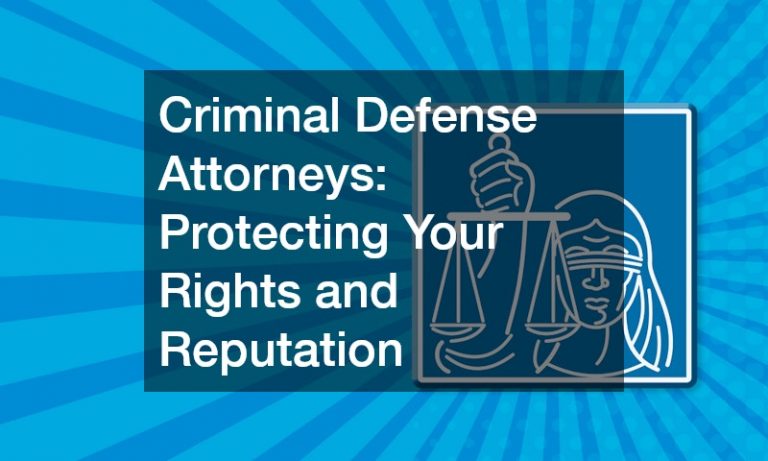Essential Questions to Ask Your Criminal Defense Attorney
This article delves into the critical questions you should consider when consulting a criminal defense attorney. Knowing the right questions can ensure you have the best representation and gain a clearer understanding of your legal situation. Effectively communicating with your attorney can have a significant impact on the outcomes. By understanding what to ask, you not only demystify the legal processes but also strengthen your position and involvement in your defense.
What is Your Experience in Handling Cases Like Mine?
Assessing Specific Experience
When facing a legal challenge, it’s essential to know if your attorney has specific experience with similar cases. An attorney with a track record in cases like yours can provide invaluable insights and guidance. It’s beneficial to ask about past cases they have handled and any unique challenges they overcame. Thoroughly understanding their specific experience can help you gauge their ability to navigate your legal circumstances effectively.
Case Outcome Track Record
Your attorney’s history with case outcomes reveals their effectiveness and strategic prowess. Inquiring about their track record involves understanding both wins and losses and what contributed to these outcomes. A nuanced grasp of past defenses can offer perspectives on potential strategies for your case. It’s wise to request examples of similar cases that resulted in favorable outcomes, noting any factors that led to success.
Years of Practice
The years an attorney has spent practicing criminal defense is another key indicator of proficiency and reliability. Seasoned attorneys likely bring a wealth of experience, having encountered a wide array of legal scenarios. Their long-standing career might also reflect a commitment and dedication to their field. While years of practice don’t automatically guarantee efficacy, they can add to the confidence you place in your legal representation.
Specialized Training and Certifications
Specialized training or additional certifications can further distinguish an attorney’s readiness to tackle your case. These qualifications might encompass areas like forensic science, DUI defense, or white-collar crimes, enriching their tactical toolkit. Asking about such training can offer assurance that the lawyer has kept pace with evolving legal landscapes. Specialized knowledge can often be critical in dissecting complex evidence and arguments.
What is Your Strategy for My Case?
Initial Assessment
Understanding your attorney’s initial assessment of your case is foundational to devising a solid defense plan. During your consultation, expect to discuss the strengths and weaknesses of your position. An effective attorney should be able to clearly outline potential pathways and focal points for building your defense. Their early evaluation will help set realistic expectations and serve as a reference for subsequent strategic adjustments.
Plea Bargaining Options
Plea bargaining may offer a viable alternative to trial, potentially reducing charges or penalties. It’s important to discuss under which circumstances pursuing a plea bargain would be advantageous. An adept attorney can advise on the viability of such arrangements and the potential benefits they might offer. This discussion should also cover how determined both parties are to reach a mutually acceptable agreement.
Trial Preparation
Trial preparation is a meticulous process that determines the framework of your defense. Knowing what steps your attorney will undertake can include gathering evidence, selecting witnesses, and devising arguments. A well-prepared defense can directly influence the proceedings’ direction and outcome. Ensuring that your attorney is thorough in their preparation is pivotal because, while many cases are settled before reaching court, trial readiness can lend leverage in negotiations.
Communication of Strategy
An attorney’s ability to communicate their strategies and updates effectively throughout the process is crucial. Transparent and timely communication can ease anxieties and keep you informed of developments. Discuss how frequently you will receive updates and through what medium—be it email, meetings, or phone calls. Understanding this procedure ensures that you remain a proactive participant in your defense.
What Are the Potential Outcomes of My Case?
Best and Worst Case Scenarios
Discussing the range of possible outcomes helps align your expectations with reality. A comprehensive overview should address both best and worst-case scenarios, considering legal and practical implications. By anticipating various outcomes, you can better prepare for all eventualities. This knowledge empowers you to contribute meaningfully to strategic decisions and focus efforts proportionally.
Legal Ramifications
Understanding the legal ramifications of potential outcomes, including penalties and sentences, offers clarity. Discussing these with your attorney ensures all parties are aware of what is at stake. Penalties might range from fines and community service to incarceration, each carrying different degrees of impact. Knowing the legal landscape can help frame your defense strategy, focusing efforts on mitigating tougher consequences.
Future Implications
Beyond immediate legal penalties, there can be longer-term implications for criminal offenses. Convictions can affect employment opportunities, housing options, and social circumstances. It’s vital to explore how different outcomes might impact these aspects of your life. Having this foresight can motivate you to consider rehabilitation options or other proactive measures to soften the future blow.
Mitigation Strategies
Discuss potential strategies for mitigating negative outcomes with your attorney. These might include plea deals, rehabilitation programs, or other forms of restorative justice. Effective mitigation can reduce sentences or charges, and demonstrating positive community involvement may shift perspectives. Knowing the available options assists in constructing a defense approach focused on minimizing damage.
By asking these essential questions, you empower yourself with the knowledge needed to make informed decisions regarding your defense and ensure you have the support of a capable and suitable attorney. This preparation enables proactive engagement with your attorney, amplifying the effectiveness of your defense strategy. Diligently approaching your legal situation with these insights promotes informed and considered participation at every stage. Remember that your involvement and understanding are pivotal to navigating the complexities of the legal system effectively.







